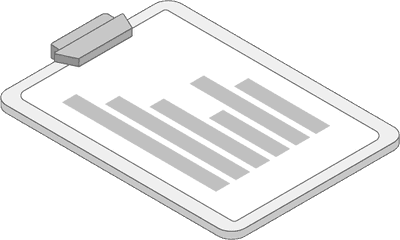Understanding Endoscopy (Guide for Upper GI Procedures)
Blog

What is an upper gastrointestinal endoscopy?
An upper gastrointestinal (GI) endoscopy, also known as an EGD (short for esophagogastroduodenoscopy) is a medical procedure that allows doctors to examine the inner lining of your upper digestive tract. During the procedure, a flexible tube with a tiny camera on the end, called an endoscope, is inserted through your mouth and gently guided down your throat. The doctor examines the esophagus, stomach, and the beginning of the small intestine (the duodenum). This allows the doctor to view detailed images of your upper GI tract on a monitor, helping to diagnose and sometimes treat various conditions.
The procedure is often diagnostic, taking a look to figure out the causes of symptoms. It can also be therapeutic, as the doctor can pass tools through the endoscope to take biopsies, remove polyps, treat bleeding ulcers and dilate strictures.
What diseases and conditions can it detect?
An upper endoscopy may be recommended to diagnose the cause of certain symptoms such as heartburn, stomach pain, swallowing difficulty, nausea or vomiting, upper GI bleeding, and bloating.
An upper endoscopy is a versatile tool that can help identify a range of gastrointestinal conditions including:
Gastroesophageal reflux disease (GERD)
This condition occurs when stomach acid frequently flows back into the tube connecting your mouth and stomach (esophagus). An endoscopy can reveal damage to the esophagus caused by acid reflux.
Ulcers
These sores can develop on the lining of your stomach, small intestine, or esophagus. An endoscopy can help locate and determine the severity of ulcers. Sometimes it is used to treat bleeding ulcers.
Cancer
Upper endoscopy can detect early signs of cancer in the esophagus, stomach, and duodenum. It also allows for the collection of biopsy samples for further analysis.
Precancerous abnormalities
Conditions like Barrett's esophagus, which can lead to esophageal cancer, can be identified and monitored.
Celiac disease
This autoimmune disorder is triggered by consuming gluten and can cause damage to the small intestine. An endoscopy can help confirm the diagnosis of celiac disease through biopsy.
Other conditions
These include strictures (narrowing of the esophagus), eosinophilic esophagitis, inflammation, infections, and sources of bleeding.
Preparation
Proper preparation for an upper GI endoscopy (EGD) is crucial for a successful procedure. Here are the general steps to follow:
-
Fasting: You are not allowed to have any solid food 8 hours prior to an endoscopy, and clear liquids must be stopped 3 hours prior.
-
Medications: Inform your doctor about all your medications, including over-the-counter drugs and supplements. You may need to adjust or stop certain medications before the procedure.
-
Medical history: Share any relevant medical history with your doctor, including previous surgeries, allergies, and existing health conditions.
-
Transportation: Arrange for someone to take you home after the procedure, as you will be sedated and unable to drive safely for the day.
For detailed instructions on how to prepare for the procedure, refer to NYGA's guide.
After Care
After your procedure, you will be taken to a recovery area, where you will be monitored as the sedation wears off (normally 20-30 minutes). Here are some aftercare tips:
-
Rest: Plan to rest for the remainder of the day. Avoid any strenuous activities.
-
Diet: You can eat immediately. Start with light foods and gradually return to your normal diet as your doctor advises.
-
Medication: Follow your doctor's instructions regarding any new or existing medications.
-
Symptoms: It is normal to experience mild bloating, cramping, or a sore throat after the procedure. However, contact your doctor immediately if you experience severe pain, fever, vomiting, or difficulty swallowing.
By understanding the process and benefits of an upper endoscopy (EGD), you can take proactive steps toward maintaining your digestive health. This procedure is crucial in early detection and treatment, ensuring better health outcomes.
Don't wait – prioritize your health today.
